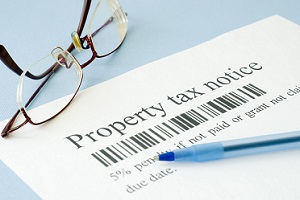
 The real property tax appeal process is a stringent and technical process and must be strictly adhered to or you may lose your appeal rights altogether. Recent legislation has changed the procedures for notifying property owners and for filing appeals, which may affect your right to file an appeal.
The real property tax appeal process is a stringent and technical process and must be strictly adhered to or you may lose your appeal rights altogether. Recent legislation has changed the procedures for notifying property owners and for filing appeals, which may affect your right to file an appeal.
Much of the appeals process has remained the same. You are still allotted 45 days to file your Notice of Appeal with the Board of Assessors following receipt of your Notice of Assessment. You still have a right to a hearing before the Board of Equalization. And you may still appeal the Board of Equalization’s decision to the Superior Court of the County in which the property is located. However, some of the notice requirements and method for delivering the Notice of Assessment has changed. Failing to understand these changes may deprive the property owner of the right to appeal their taxes.
Changes in Georgia Ad Valorem Tax Appeals
The Georgia Legislature has passed various bills and the Governor has signed into law some amendments to Georgias law on appealing your Ad Valorem Tax Assessments. Hecht Walker is one of the few law firms in the metro Atlanta area that offers commercial property tax appeal and property tax refund representation and is well equipped to help you understand and properly respond to these changes. We have successfully represented many companies, landlords, and tenants over the past several years both at the Board of Assessors, known as the BOA, the Board of Equalization, known as the BOE, and Superior Court levels.
Georgia law provides a procedure for property tax appeals at the county level. Taxpayers may challenge an assessment by the county board of tax assessors by appealing to the county Board of Equalization or to an arbitrator or arbitrators. This must occur within 30 or 45 days (depending on the county) from the date of the change of assessment notice that is sent by the Board of Assessors.
Appeals may be filed if there are questions related to any of the following categories:
- Taxability the determination of whether or not the property is exempt from taxation.
- Uniformity of Assessment Are values the same within the same class of property? As an example, if one gas station is taxed at a certain rate per acre, is another property with a gas station, in the same geographic area, taxed at the same rate?
- Value – Did the county board of tax assessors change the appraised value of the owner’s property this year?
- Denial of the homestead exemption.
Changes to Georgias Laws on Appealing Ad Valorem Tax Assessments include changes to the Notice Requirements and to the way in which the County Board of Assessors may notify you of any changes in your Tax Assessment. This year, unlike prior years, each and every taxpayer will receive a Notice of Assessment for their property regardless of whether they have sent in a Tax Return. The County may also send this Notice by electronic mail as opposed to regular mail, which was required previously.
Pay Attention to the Notice Date
Regardless of when a Notice of Assessment is received, the deadline for filing an appeal begins on the date of this Notice. If you fail to send in your Notice of Appeal by the deadline, there is no way to appeal the taxes for that year and you will be responsible for the taxes assessed even if you have a legitimate dispute.
The County Considers Current Use Value in Determining Taxes
A potential positive change is that, now, the taxpayer may be able to have the value of the property more accurately reflected in the tax assessment. This is the value that a knowledgeable buyer would pay for the property with the intention of continuing the property in its existing use and in an arm’s length, bona fide sale. This means you can use the fair market value to help determine the tax value based on what a buyer would pay for the same use. This may be more beneficial to the taxpayer in terms of the valuation, which can reduce your overall tax liability.
There are several other nuances and minor changes to the Ad Valorem Taxation and Appeal Process. In order to better understand these changes and how they may affect your tax liability, please contact Bob Quinn by phone 404-348-4881 or contact the offices of Hecht Walker P.C. for a consultation.
About Bob Quinn
Robert Quinn is an Associate at Hecht Walker. His practice concentrates on commercial disputes, landlord representation, note and guaranty litigation, employment law, business and real estate litigation, property tax appeals, and government issues.

